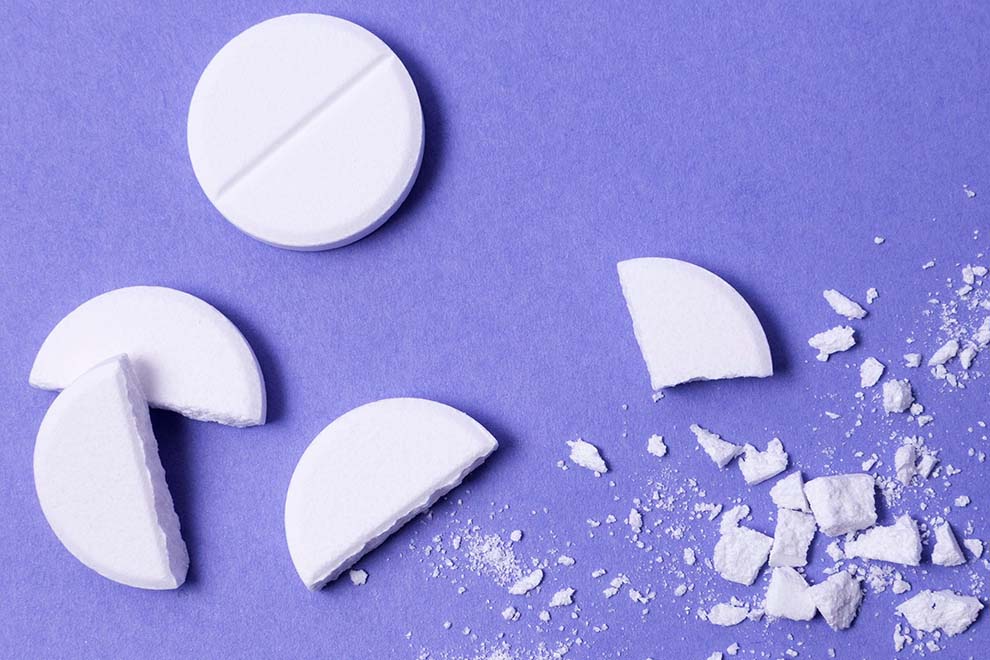Do you know how many people in America suffer from heartburn problems? According to the American College of Gastroenterology, 60 million Americans suffer heartburn at least once a month.
And that evidence led us to do a market survey about how many people are taking over the counter medicines like antacids for heartburn relief. And we learned that approximately one-half of Americans take antacids willingly as an acid reducer.
But do antacids are really good for our health? Don't these tablets have any long-term effects on our health?
This article is intended to dig into all pros and cons of Antacids.
What Do Antacid Tablets Do?

Antacids are one kind of acid reducer. It is a medication that helps you to relieve heartburn and indigestion. Antacids neutralize stomach acid, and block the production of an enzyme that makes acids when food is broken down for digestion. These tablets work fast to relieve gas and treat heartburn within a few hours.
Antacids are a mixture of compounds with various salts of calcium, magnesium, and aluminum as active ingredients.
Generally, there are two types of antacids.
- Liquid Antacid,
- Chewable Antacid tablets.
How are antacid tablets helpful?

The FDA- Food and Drug Administration approves taking antacids for treating gentle cases of heartburn and indigestion. It means you can take Antacids or liquid Antacids every once in a while, if you undergo any heartburn or gas problem. But if the problems run daily, you need to check with a doctor.
Antacids help reduce the symptoms of
- Acid reflux or gastroesophageal reflux disease.
- Stomach lining inflammation or gastritis.
- Stomach ulcers.
Mostly, it is safe to take antacids. However, young children and people over 60 face specific problems, including;
- Constipation
- Diarrhea.
- Gas or too much acid.
- Drestructive burning sensation.
- Headache.
- Nausea
- Vomiting.
- Stomach cramps
- Upset stomach
- Pain in the abdomen.
The Side Effects of Overdose Of Antacids

If you overdose or take antacids tablets for an extended period of time, then there will be inevitable consequences.
Acid rebound
Long-term use of antacids may cause your body to produce more acid, which worsens the current situation.
Neurotoxicity
Regular consumption of Antacids may change the function of your nervous system and make your symptoms worse.
Microcytic anemia:
You will feel less active, which is an indication of Iron deficiency.
Osteopenia
Your bones will be weakened day by day. You may feel bone pain or joint pain.
Hypercalcemia
Sometimes, it may cause too much calcium in your blood.
Don't take antacids repeatedly. If you experience symptoms of heartburn or digestion problems daily, it is best to reach out to the nearest hospital or a doctor.
Check Your Condition Before Taking Antacid Tablets

Antacid contains aluminum hydroxide, sodium bicarbonate, magnesium hydroxide, calcium carbonate and magnesium carbonate; it would be best to consult a doctor before taking any antacid tablets if you are taking other medicines or other drugs.
Heart Failure Patients
To decrease fluid accumulation, patients with heart failure may need to restrict sodium intake.
Kidney Failure Patients
Antacid tablets may develop a buildup of aluminum in patients with kidney failure. In this case, taking antacids will lead to aluminum toxicity.
Also, antacids carry electrolytes; for certain kidney failure patients, antacids will create problems with electrolyte balance.
Don't Give To Children
Usually, Children don't have serious acid problems in their stomachs. So it is better not to give them any kind of chewable tablets or a liquid antacid. If they face a gas or digestive problem, check with the doctor first.
You Need a Doctor, Not Antacid Tablets
When can you understand that you are taking acidity tablets, but you need to see a doctor? Most people take acidity tablets like omeprazole when they experience stomach acid, as antacids work quickly. They just don't think twice and take a pill. But sometimes, these symptoms mean something else. Maybe they are the sign of some severe illness.
You must understand how bad or deep your problem is. Usually, an upset or gassy stomach could actually be a peptic ulcer or gastroesophageal reflux disease (GERD).
An antacid tablet can only soothe the problem for the time being, and it is not the permanent solution. If you suffer from severe pain or gas in the stomach and don't feel any better after taking the antacids for two weeks in a row, then you must see a doctor.
Not only this, some stomach pains are similar to a heart attack. Don't get confused with heart attack and gas pain. If you are facing chest pain for more than 2 minutes with these following symptoms
- lightheadedness
- shortness of breath
- pain that radiates to your arms, shoulders, or jaw
- neck or back pain
- vomiting or nausea,
Call a doctor immediately. Don't just think it's a gas pain or heartburn.
Finally
Antacids are helpful if you use them occasionally. If you get addicted and take antacids regularly without any prescription you probably lead your body to something very dangerous.
Many patients are facing the consequences of taking those acidity pills over and over. Continuously having gas and digestion problems can not be fixed only with an acidity pill. You need to seek medical help unless you want to get more serious condition.
Frequently Asked Questions
Question 1: Can I take antacids and alcohol?
Answer -1 Yes, you can take antacids and alcohol, but alcohol may make the digestion system more destructive and further upset your stomach. Many people drink alcohol with liquid form of antacids which are actually not a good form of taking acidity tablets or liquid.
Question 2 - is yogurt good for heart burn?
Answer 2: Yogurt is healthy for heartburn if that is low in fat. Low-fat yogurt is generally safe to eat for people who have GERD. You should avoid eating whole-fat yogurt. Whole-fat yogurt can be more challenging to digest and might activate GERD symptoms.
Question 3: Which is a popular Antacid brand?
Answer 3: Popular brands for antacids are:
- Tums
- Mylanta
- Pepto-Bismol,
- Rolaids.
Question 4 - can you take tums and Pepto?
Answer 4: No relations were found between Pepto-Bismol and Tums. However, this does not necessarily mean no relations exist. Do consult your healthcare provider before taking them together.
Question 5 - Are Tums Safe To Take Everyday?
Answer 5: Tums are safe for acid reflux and rarely have any serious side effects. But it doesn't mean you should take them regularly. Long-term antacids may create problems such as kidney problems, kidney stones, and heart problems.


